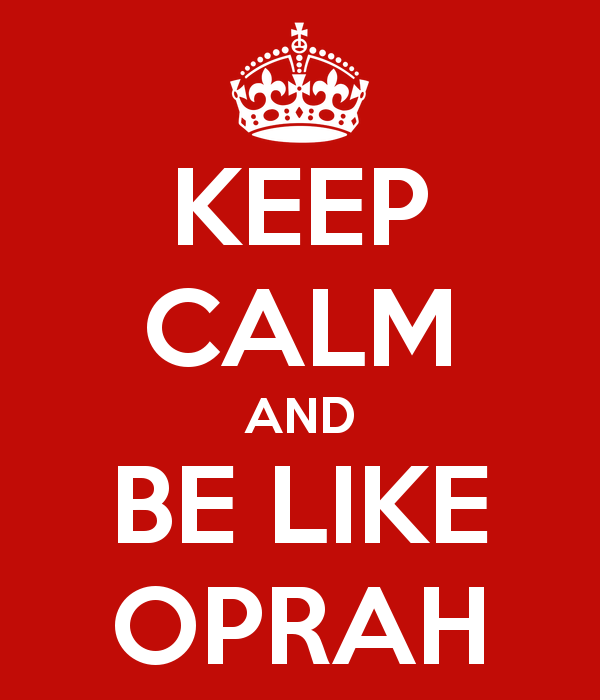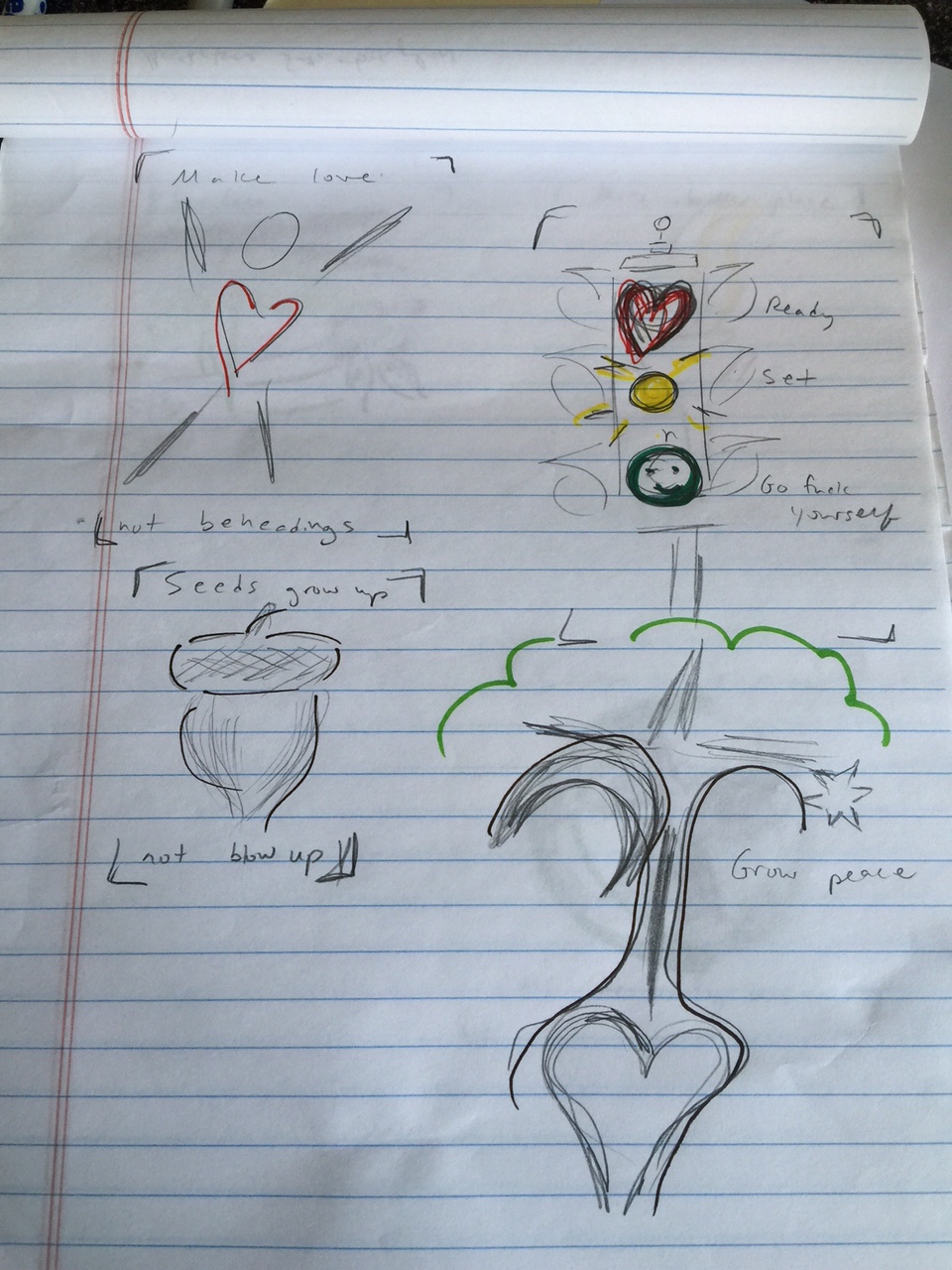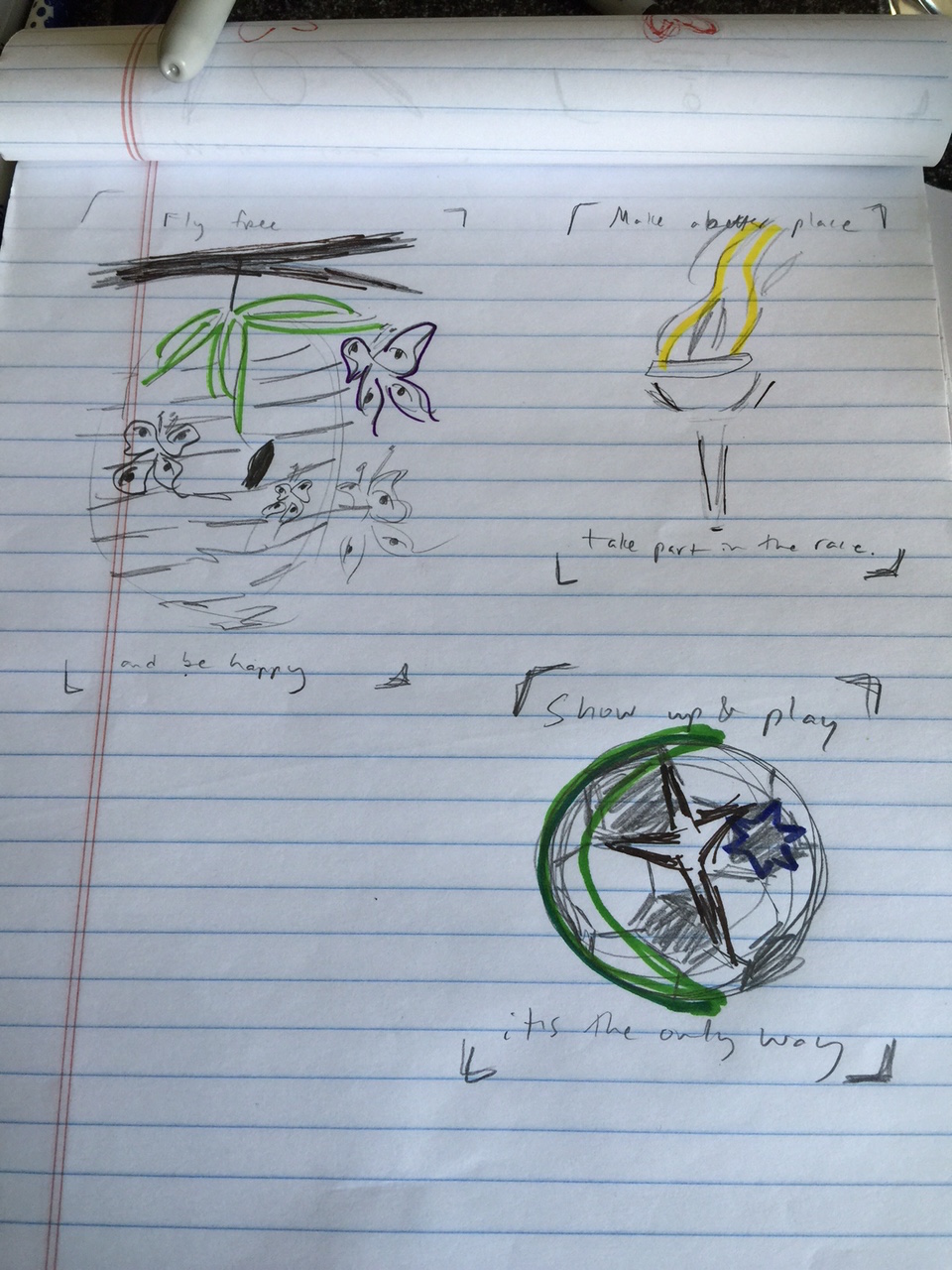One of the things I’m thinking about doing to put off writing an actual business plan is interviewing people who run successful businesses something like the one I think I want to run. The most obvious examples are the Keep Calm Generator folks—who I haven’t identified yet, but someone must have this logo and slogan trademarked and profit from at least some of the mass of merchandise, even though the Crown came up with it?—and Randall, the guy who runs XKCD and made enough money from drawing stick-figure web comics to have a giant pool of balls in his house.
Don’t you know the bureaucrat working propaganda during the Blitz who came up with Keep Calm wishes we’d had the Internet and ready access to copyright lawyers back then, if he or she is still alive today? That person would be filthy rich if the government didn’t own her work.
There is a similar market and social need opportunity today for images that answer ISIS, or as I like to call them—since they’re not Islamic and they’re not a state—ISISn’t.
And it needs to be professionally designed, like the ISISn’t flag and the Keep Calm meme alike. Hopefully I can learn to do this myself in a free trial of Photoshop. But first, the ideas.
Here is where I will further brainstorm an anti-ISISn’t flag, logo, meme, image, slogan thing out loud on my blog, because this is how I think.
Characteristics of Keep Calm
The Keep Calm logo and slogan is the best model for what I want to do here. It shares six characteristics with other successful memes.
1. Its simple, professional visual design and text are easy to take in and remember. Even easier because it rhymes (almost). There’s nothing to digest here. You get it at a glance.
2. The text and image alike are easily customizable. So people get the immediate gratification of the creative high that leads people to do crazy stuff like leaving Harvard postdocs to go sleep on couches or in hostels around the world. Must be a powerful feeling, that creative high.
3. It uses positive selective attention to answer negative information and material warfare. Where the Nazis said, “Blitz! You’re all going to die in a fire!”—to paraphrase—it did not make psychological sense to respond, “Jinx! You’re all going to die in a fire, too!” or, “Chillax, people, you probably won’t die in a fire, but we live in a probabilistic universe in which shit is going down, so we really can’t say, but please pretend everything is fine or the opponent wins!” (Which is exactly the problem with terror in free societies. Just making the information about it available terrorizes people, in which case the terrorists win.)
Keeping it positive empowers people to respond to violence and prejudice with resilience and toleration. That’s exactly how we must respond to home-grown violent extremist recruitment on social media.
4. It’s pretty.
5. The Crown symbol tells you who the speaker is, so you’re situated in a conversation. It’s personal.
6. The message talks to you, too. It identifies you as the audience, so again it seems personal.
Other examples of great slogans include Obama’s “Yes, We Can” and Uncle Sam’s “I Want You.” But you don’t see these still on posters, mugs, T-shirts, and bibs everywhere tchotchkes are sold. You see that not just around London with “Keep Calm,” but also online in the U.S. It’s well-situated enough in terms of speaker and audience to feel personal, but simple, pretty, and customizable enough to have staying power.
Now let’s play a fun game where I apply that in theory to creating an anti-ISISn’t meme analytically before drawing a bunch of terrible drafts.
Keep Calm and Defeat ISISn’t
It’s gotta be simple, customizable, and pretty—and preferably rhyme or otherwise be catchy, easy to remember. But how do you use positive selective attention to counter hate group recruitment? Who’s the speaker? Who’s the audience? What are the relevant symbols?
And—not a new problem, but a more difficult problem in the Internet age—how do you keep a good meme from going bad?
Positive Selection Attention to Counter Hate
I’m not sure how well you have to know ISISn’t’s message to counter it. But it probably doesn’t hurt. So I read the Twitter and Facebook pages of three of their top UK recruiters—Abdul Muhid, Anjem Choudary, and Mizanur Rahman. And studied some of their main Youtube channels—TheMercifulServant (whose tagline is “Allah is only merciful to those who show mercy to others”), AbuBaraa 01, . TheMercifulServant glorifies death and dying for Allah, but a lot of the other social media content is about life and making life safe for Muslims. So there’s an apparent tension there.
Choudary is easily the most interesting of these guys. One of the most interesting things Choudary says is: “Democracy violates the sanctity of everyone & everything BUT The Shari’ah guarantees protection of Religion(Islam) Life Honour Mind Wealth.” To which one user, Nathaniel Kahn @CodeSpins, responds with “remember bitches NO ALCOHOL” and a picture of a man holding up a beer. But it’s an attack on democracy that doesn’t require followers to give up wanting wealth or material comfort.
Another of Choudary’s anti-democratic posts reads: “Nations run by democracy are plagued by Rape Robberies Gambling Suicide Promiscuity Abortion Porn Alcohol Shari’ah erases ALL these evils.” It seems to be a pragmatic argument, not an idea-driven one. We can argue the material realities—e.g., ISISn’t affiliates, like Boko Haram, and other Wahhabist extremist groups are known for using sexual violence as a weapon of war. (This is not a Them problem, but an Us problem—rape is a common problem in war, with war. Since war normalizes violence and thus violence against women.)
But the really interesting thing about Choudary’s use of Shari’ah as an alternative to democracy in these sorts of posts is that he assumes there’s no interpretation in Shari’ah. No human hand in applying God’s word to man’s world.
That’s implausible. It’s important to draw attention to that implausibility, to the interpretation innate in application of law to society. Because Choudary is right that the idea of Shari’ah as a form of or influence on government is a politically important one today. He writes, “The defeat of Communism & failure of Capitalism to provide solutions to the world’s problems leaves Islam & the Shari’ah to fill the vacuum!”
Of course proponents of communism and capitalism alike might argue that pure forms of both those ideas have never been implemented as systems of political or economic governance—just as Choudary and ISISn’t argument about Shari’ah is that they have a special monopoly on it even though it’s all been done before. So one can’t claim that any of these systems has failed. Unless of course one is making generalizations on Twitter to recruit gullible young people to an intellectually dishonest cause.
Everyone interprets theory to make praxis. But propagandists claim they’re not doing it. The laziest way possible of doing this is to say your praxis comes from God. So
Choudary puts words in God’s mouth, writing: “Promises of Allah of things to come: Defeat of occupying Jews, Conquest of Rome, Conquest of the White House, Domination of the world by Islam.”
Choudary’s White House Tweet got 64 Retweets and 44 Favorites. A bunch of people called him out, mostly snarkily and on the White House bit, some asking what he was smoking, some offering him Jesus or peace.
But it’s not easy to pull those open-source lists of WHO retweeted or favorite that, and with one click target THOSE social media accounts with some form of respectful, positive, persuasive response. And that’s what needs to happen to counter ISISn’t social media recruitment.
Someone needs to make a tool that makes it really easy for other users to counter this crap. But first that someone has to monetize (if it’s me, since I’m not independently wealthy and this is a job)—and set the tone. Because it won’t be a short-term project, it won’t be an effective tactic if it’s not respectful and persuasive to people with confirmation bias—that is, ISISn’t supporters who live in their echo chamber—and it won’t work if it’s not easy and fun enough that a bunch of people do it despite the perception of some risk. In part because, just as with any other form of resistance, the individual risk diminishes the more people do it.
(Anyway, perceived risk shouldn’t be a big deterrent to the same people who think about risking their lives fighting FOR ISISn’t. Except that logic assumes people are rational. Pause for laughter.)
Some people are already doing stuff like this really well, and we need better ways to promote their voices, too. For example, this gorgeous Nasheed about not hurting or judging other people has over 5,000 views on Youtube. It uses art and capitalism—it hocks T-shirts at the end of the video—to make Islamic arguments against violence and prejudice. You could conceivably quote from it to counter ISISn’t propaganda that rejects art and capitalism.
Back, then, to the Keep Calm and Defeat ISISn’t brainstorm.
Positive selective attention to counter this particular hate group’s online recruitment probably needs to focus on:
– Life. Life not death being a good thing for your well-being. God loves the faithful and wants us to thrive.
– Democracy. Religious influences on secular governments in democracies being common, constructive, and collaborative. If you want to make society better through these influences, you work through the system to do it. Anything else is like saying sports are stupid because you never win, and then refusing to play the game.
– Success. A lot of the negative selective attention ISISn’t is using to recruit on social media is about injustice (e.g., police abuses) and failure (e.g., of tolerance in liberal democracies or capitalism as an economic system). So drawing attention to justice, toleration, and entrepreneurship, and how we can build out to increase these good things together, is the positive selection attention field analogue to emphasize.
Michael Jackson and Oprah are the masters of positive selection attention. I don’t know how to apply that right now, I just know it’s true. They focused on lovely things (“heal the world,” “it doesn’t matter if you’re black or white,” “you get a car”) while confronting horrible things (violence, racism, poverty and its loops). It can be done.

Speaker and Audience
The speaker emphasizing these things has to be us. Regular people who control social media in free societies. The beloved community that is overwhelmingly law-abiding. The Abrahamic ummah that is overwhelmingly tolerant and peaceful. And peace-loving believers, religious and secular—believer in any kind of goodness, in the future, each other, hope for our world together. Regular people making fun of shit on the Internet.
The audience is the same. It’s an Us, not a Them. Because ISISn’t recruits in particular, and hate group recruits in general, are regular people who are persuaded by ideas, images, and the appeal of belonging and sense of purpose—or what Andrew Carnegie identified as the desire to feel important—just like everybody else. What’s really sad is that they’re people to whom arguments about injustice and immorality appeal. ISISn’t recruiters use images of children starving in Syria, real examples of racism and police brutality, and other things we all agree are horrible to recruit people who care about truth and justice to an equally horrible cause. We need those potential recruits working on truth and justice in more productive ways. These are really valuable lives we’re losing on both sides.
Possible Symbols
If Keep Calm was the opposite of the blitz’s command that Londoners panic, what symbols are like opposites of ISISn’t’s glorification of death, rejection of democracy, and focus on failure? What symbols celebrate life, democracy, and success from the point of view of all of us, to the point of view of all of us?
Anonymous has got that spirit. But first of all, that set of symbols is taken. And second of all, there’s something hypocritical about the lack of transparency there. Democracy is about coming to the market place of ideas, showing your face and your wares, seeing what happens. It’s risky. It’s personal. The more everyone does it, the less risky and yet more personal it is. So generally I’m a fan of Anonymous, but I’m up to something different here out of faithfulness to the idea of transparency and its function in the marketplace of ideas.
Life and the idea of choosing life has been a bit coopted by the anti-abortion folks in the U.S. But maybe you could symbolize it visually with a riff on Happy Human, Keith Haring, the XKCD sort of comic tradition. One could also envision a modified traffic light, an acorn, or a tree of life, like so:

Democracy is hard to symbolize visually in the West. My most ready mental images are of ink-stained fingers in post-Saddam Iraq, people in the streets during the Orange Revolution, and scenes from Rihanna’s “American Oxygen.” The problem with democracy—as I’m sure many others have already said—is that it’s the worst possible form of government, except every other form. So it’s hard to think of visuals symbolizing it that don’t involve mess, argument, protest over injustice, the tolerance paradox (wherein we tolerate intolerance in liberal democracies, so arguably they contain the seeds of their own corruption or destruction—e.g., cross-burning is protected as free speech in the U.S.), open flame, and loud noises (fireworks, concerts, arguments).
Certainly though one might symbolize the spirit of democracy in the form of a freedom hive, the spirit of toleration in a combination of religious symbols like lots of people have already done, or perhaps a flame. Although the Olympic flame, symbolizing human achievement, might be better as a symbol for success.

Of course, any good image or slogan can be coopted. Information warfare is like any other form of competition—it’s a continual dialogue, an arms race of words and images. That points to perhaps the biggest danger of making a Keep Calm and Defeat ISISn’t meme along with a social media tool to combat hate group recruitment online. ISISn’t can steal it.
Haters Gonna Hate
ISISn’t managed to steal a Nike slogan for jihad. (Just Dua It is one of their most successful memes. It’s so brilliant I wince every time I write it because I’m spreading it. I’m spreading it right now! Aaaah!!!)
So I like to think that if I keep the focus positive enough, like Keep Calm, it will be relatively hard to make what I make work for evil. But the reality is that—as in all realms—anything I can make that is awesome, they can steal and make evil.
That’s why I have to make the social media tool that combines meme generation with easy, decentralized targeting of ISISn’t social media followers. Because the arms race of online hate group recruitment is one in which propaganda flies so fast, no centralized group can combat the hate. It has to be a game everyone is playing, for everyone—the vast majority of regular people who want peace—to win.
I think my next steps are probably to brainstorm more while talking with people here in London who have actually been recruited and turned back (or not), make some proper drafts to pretest or brainstorm with real people in those targeted communities here, and play around with building at least a draft version of the tool to pull lists of people who follow ISISn’t propaganda into lists that others can target for respectful dialogue to change the available narrative.
It’s very hard to fight confirmation bias, the bias that what we already think is right. That’s part of why art is so important in this equation. Images, music, and allusion work better than argument, force, and proof. Which is why hate groups can become powerful in the first place.